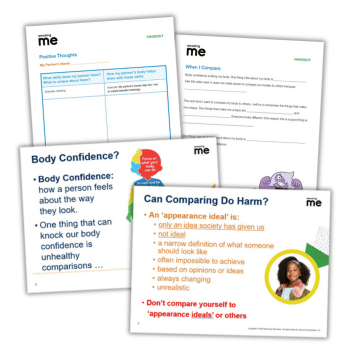Should I Stay or Should I Go? – The push and pull factors affecting teacher recruitment

Teachers are joining and leaving in record numbers, so what’s drawing people in and what’s driving them away, asks Lloyd Burgess…

- by Lloyd Burgess
- Former editor of Teachwire

“Can’t sleep, no social life, but still love ‘teaching’; it’s the rest of it that’s unbearable.”
Sound familiar? The government is keen to tell us that record numbers of new teachers are joining the profession, and, of course, there are more ways in than ever before.
But more teachers are leaving too, creating a deficit. While we’re seemingly doing a decent job of recruiting young, enthusiastic educators, many are leaving within the first few years.
What are we telling them that creates such disillusionment in teaching. Or perhaps, what aren’t we telling them?
The current issues around the profession are certainly well-documented, but people still want to teach regardless. Phrases like ‘In it for outcome, not the income’ are often used to point out that giving children a good education is the driving factor, and the hashtag #whyiteach is similarly littered with the usual reasons such as ‘to give children the education they deserve’, ‘to make a difference’ and ‘for those lightbulb moments when a child finally ‘gets’ it’.
Why I teach
A recent report from Pearson and LKMco looked into how we can encourage people to join and stay in the teaching profession.
The most common reasons given for going into teaching was that people believed they would be good at it (93% said it was an important factor), and that they wanted to make a difference in pupils’ lives (both had 93% of people say they were a factor).
Making a difference to society and working with young people came in at 87% and 86% respectively. This was certainly the case with the new teachers we spoke to who were heading into their first year this September.
Andrew Campbell, 25, studied Geography at Oxford, before teaching English as a foreign language in four different countries, then this year starting teaching in Baddow Primary School near Middlesbrough.
“I’m hopeful that I can make a real difference, but I know it’s going to be a huge challenge,” he says. “With friends in the profession, I’ve heard a lot of horror stories. When I mention that I’m going to be a primary teacher I often get that look of, ‘Are you sure?’.
“I think that maybe a lot of people see the primary teacher as a motherly figure, which for men could make some a bit reluctant. But, obviously male primary teachers can make a difference, and can also be a lot of fun for the kids.”
Gabrielle Ko had a similar route into the profession, heading out to Thailand to teach, before starting at West Newcastle Academy this year.
“My degree was in maths and economics, but I knew that I didn’t want to work in the banking or finance industry where a lot of my friends went,” she says. “I tried out lots of different jobs. I worked at a defence company for a while, and did an internship with the school service, and I was even a Christmas elf.
“That was what made me realise that I really enjoy working with children.”
West Newcastle Academy opened in 2013, with a teaching style modelled on the Reggio Emilia approach and Danish pre-schools. “It’s a really progressive school, and I’m really into new ideas,” says Gabrielle.
“I come from quite a disadvantaged background, so it spoke to me that I’d be helping children who were in that position.
“There’s always talk about this recruitment crisis, but I think that places like Teach First are one of the ways you recruit more. It’s doing a really good job of attracting graduates who might otherwise not have gone into teaching.”
Job-changer Hannah Lister, 26, who now teaches at the Northumberland Church of England Academy in Ashington, made the switch from the political sector, having worked as a campaign organiser for the Labour Party in Scotland.
“I started teaching piano in the evenings, and decided I absolutely loved it,” she says. “With politics, everybody goes in thinking they can change the world, but sadly that doesn’t happen.
“But I think with teaching you feel on a day-to-day basis that you can help, that you can make a difference.
‘When you hear that a lot of people don’t stick to the job, and you’re coming from a stable, permanent position, that can be off-putting. The financial help and support isn’t there for career changers.
“I applied for PGCE and a PGDE in Scotland, but that route is quite impractical because you’d have to go back to university and, you know, I’ve got a mortgage to pay.
“So I went the Teach First route, which is really good for career changers in terms of support. It’s salaried job, but it is unqualified teacher pay for the first year.”
Why I quit
But it seems that there is a limit as to how far you can push these good intentions that draw people to teaching. More than half (59%) of respondents to the aforementioned Why Teach survey said they had considered leaving in the past six months.
Workload is the main reason for this, with 76% of teachers citing it as a reason, while lack of quality in leadership and management and insufficient pay were next on the list, each with 43% of teachers highlighting them as important factors.
Peter Keeffe, a former teacher of 30 years, and head of teacher education at South Leicestershire College, has seen many young teachers hit this wall of disillusionment. “I left because I was fed up with it, particularly the managerialism and increasing surveillance,” he says.
“It kills innovation and demotivates people who are being constantly surveyed and critiqued. Managers are under increasing stress and pressure because they’re target driven, and then it becomes a kick-the-cat-down-the-line process for younger teachers.
“New teachers are ultimately given a paint-by-numbers approach that precludes innovation, that precludes joy, that precludes individuality.
“And that, this increasing dead hand of standardisation, drives people away from the profession. With the best will in the world, these young teachers are so keen, and they put more and more in, and then burn out too quickly.
“The adverts they put on the TV paint such a rosy picture, but it has no reflection of the realities of teaching whatsoever, and the people who get sucked in by that are soon disillusioned by the harsh reality of the profession.”
Jess Ratcliff had been teaching for 11 years when he left the profession in 2014. “My heart wasn’t in it any more,” he says. “I was bored with the relentless grind of exams, tests, parents’ evenings. There wasn’t time to think, or to plan.
“And the thing that I actually enjoyed doing, the teaching, was always the first thing that got pushed to the sidelines. Teaching had taken over and I had a young family with whom I wanted to spend time.
“When I did have time off I was just shattered. I didn’t realise actually how stressed I was until I left teaching.”
Jess explains that the constant attacks by politicians made him feel that teachers weren’t valued any more, and that they were expected to give themselves totally to the job for very little reward.
“I know that many new teachers coming in want to give and give and give, but it’s a marathon, not a sprint. If I have the option between you at 100% for three months, or you at 60% for a year, there’s no contest. It’d be you at 60% for a year.
“I’m, in essence, an adult educator now. I’m less stressed, and within a couple of months there were noticeable changes in my behaviour, mood and my energy levels.
“And I actually feel trusted to do my job, people listen to my opinions and I’m not micromanaged. But the the biggest change is I believe in what I’m doing.
“I believe I’m making a difference, whereas as a teacher, I just didn’t feel like that any more.”










